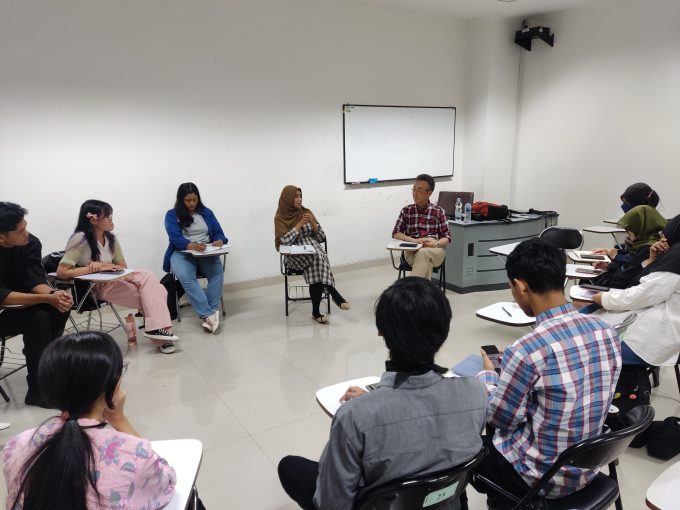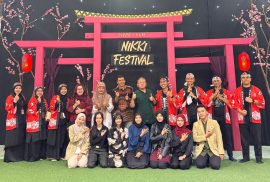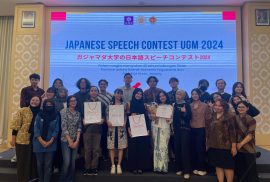
On Monday, February 26, 2024, from 4:00 PM to 5:30 PM WIB, the Bachelor Program in Japanese Language and Culture held a casual in-person discussion on the topic of “Current Conditions in Japan” with Dr. Aoyama Toru, an Emeritus Professor from Tokyo University of Foreign Studies. The discussion was attended by lecturer and active students from the Bachelor Program in Japanese Language and Culture.
The discussion began with an explanation of Japan’s current situation by Dr. Aoyama. On January 1, 2024, the Noto region in Ishikawa Prefecture experienced a devastating earthquake measuring 7.6 on the Richter scale at 2:10 PM local time. The earthquake not only damaged many public facilities and homes but also affected access routes to the areas hit by the quake. The severe destruction hindered the government’s disaster relief efforts. Moreover, the impacted area is predominantly rural and inhabited by elderly residents, many of whom struggle to move quickly in emergency situations. This earthquake and its aftermath could potentially lead to the region disappearing from the map of Japan, as young people are increasingly choosing to live in cities with better facilities. Following Dr. Aoyama’s explanation, the session transitioned into a dynamic and interactive Q&A segment. This was followed by a discussion filled with various questions concerning social issues currently facing Japanese society, including the link between the problem of shoushikoureika (少子高齢化), which refers to low birth rates and a high aging population, and Japan’s future conditions.
The discussion with Dr. Aoyama provided the Bachelor Program in Japanese Language and Culture’s students with valuable experiences that can enhance their critical thinking skills. By studying social cases in Japan, students not only broaden their horizons but also refine their creativity in formulating solutions to existing or similar problems in Indonesia. This activity serves as an inspirational window for students to learn and enrich their perspectives on the current conditions in Japan.




